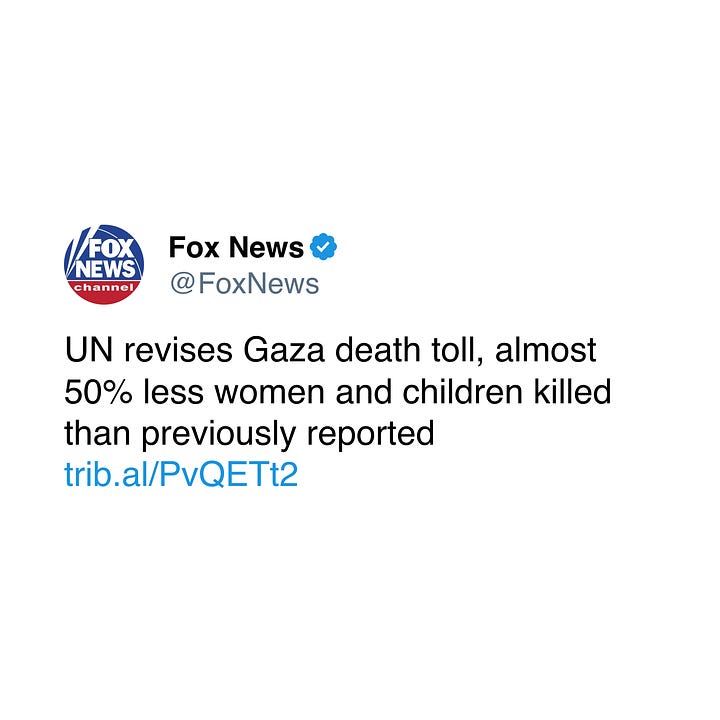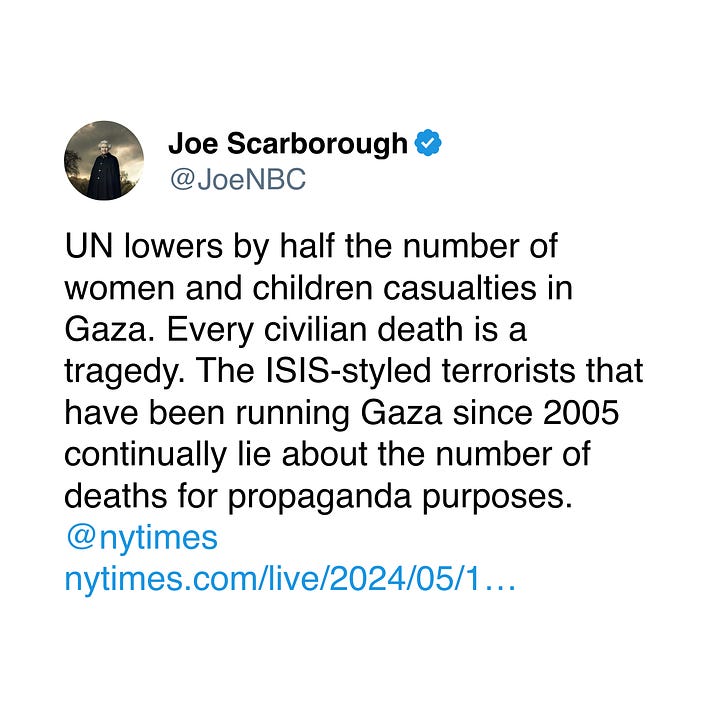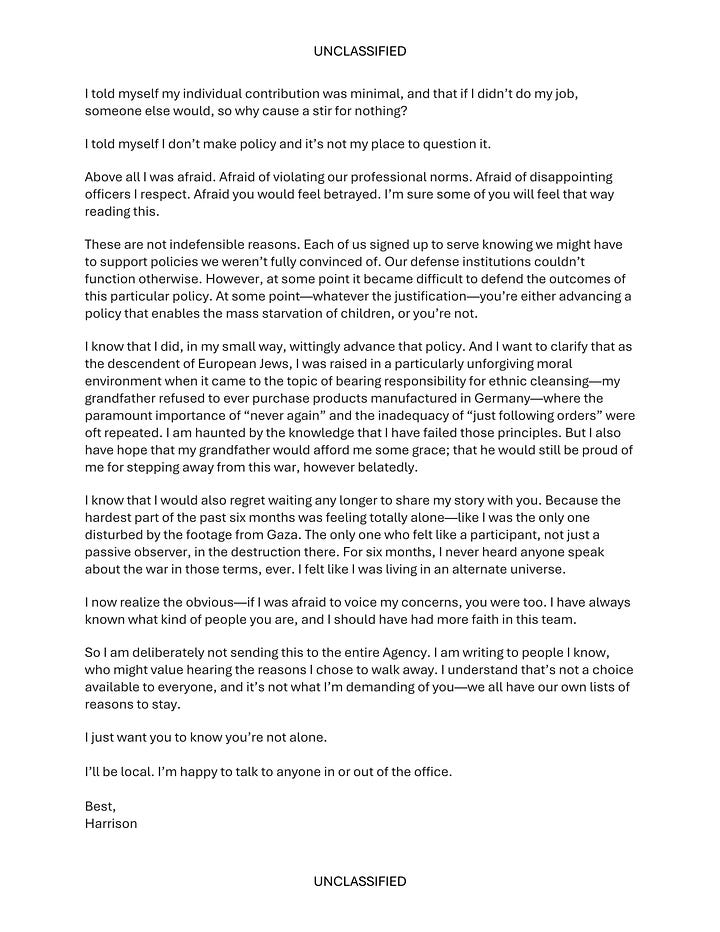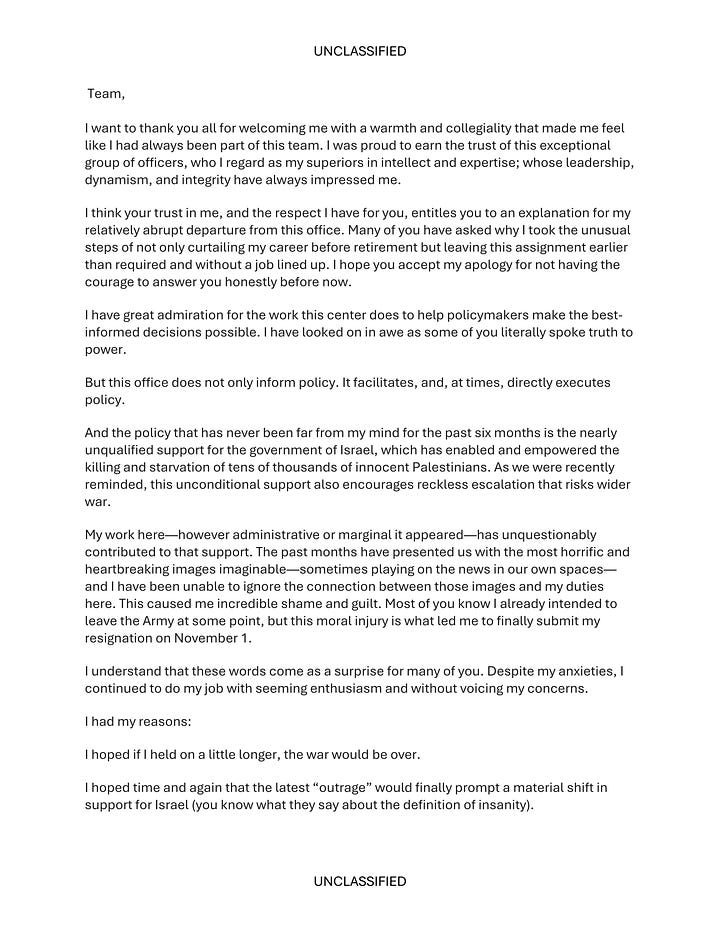In the fog of the ongoing Israeli war on Gaza, misinformation spreads like wildfire, often fanned by mainstream media. Just recently, a viral story falsely claiming that Hamas's death tolls were inflated gained traction, thanks to platforms like Fox News and MSNBC’s Joe Scarborough.


The confusion stemmed from a misinterpretation of a report distinguishing between identified and unidentified Gazans killed by Israeli forces. The misleading conclusion? That the casualty figures were exaggerated and should be halved.
But this narrative was swiftly debunked by the UN Secretary-General’s spokesperson, who confirmed the death toll remains at 35,000.
Yet, Scarborough's misleading tweet, asserting that "Hamas figures are false," remains uncorrected, highlighting a troubling trend: misinformation endures even in the face of authoritative denials.
In a dramatic turn of events, Major Harrison Mann of the Defense Intelligence Agency resigned after 13 years, protesting the U.S.'s unwavering support for Israel amid its deadly campaign in Gaza.
In a bold LinkedIn post, Mann declared that current policies "violate his conscience," enabling "the killing and starvation of tens of thousands of innocent Palestinians" and fostering reckless escalation.


Mann’s resignation is a stark reflection of mounting dissent as the Israeli war on Gaza intensifies. With Israel’s imminent invasion of Rafah looming, many argue the assault has already begun with relentless bombings.
U.S. National Security Adviser Jake Sullivan, during a tense press briefing, admitted Israel lacks a clear plan to safeguard Gazans and prevent mass civilian casualties. When grilled about Israel blocking humanitarian aid, Sullivan's response was notably evasive, acknowledging past restrictions but implying they were resolved.
Sullivan's reluctance to label Israel's actions as genocide further inflamed the press. His deflection to the U.S.’s detailed position at the International Court of Justice was seen as a cop-out, avoiding direct confrontation with the harrowing reality on the ground.
The administration’s stance has drawn sharp criticism, with some accusing it of defending an indefensible policy.
The rhetoric escalated over the weekend when Senator Lindsey Graham made headlines, suggesting Israel should treat Gaza as the U.S. did Hiroshima and Nagasaki. Graham’s shocking call to provide Israel with the means to decisively end the war sparked outrage, seen as an endorsement of extreme measures against civilians.
This dehumanization of Palestinians, echoed by pro-israeli figures like lawyer Alan Dershowitz questioning the innocence of Gaza’s civilians, normalizes the idea of collective punishment—a recognized war crime. Such statements not only strip Gazan civilians of their humanity but also bolster arguments for extreme and punitive measures.
Amid overwhelming evidence of humanitarian crises and potential war crimes, U.S. officials’ reluctance to address these issues head-on is telling. As the conflict rages, the need for clear, truthful reporting and principled stands on human rights becomes ever more critical.
The resignation of individuals like Major Harrison Mann and Lily Greenberg underscores the moral complexities and urgent need for an ethical recalibration in both international policies and media coverage.
For those committed to justice and clarity, it is imperative to challenge these misleading narratives and advocate for the protection of all innocent lives caught in the crossfire. The voices of dissent and the pursuit of truth must persist against the tide of misinformation and biased reporting.



